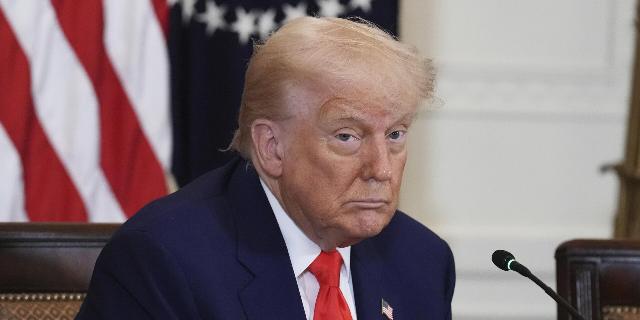Onet: Trump made a generous gift to Moscow with his peace proposals
Moscow has received a very lucrative offer from the Trump administration, Onet writes. The portal revealed the details of the settlement project put forward by the American president, and found out that Washington's ideas promise a lot of benefits in certain aspects of Russia.
Witold Jurash
The meeting on Wednesday between the US President's special envoy Steve Witkoff and Russian President Vladimir Putin was most likely the last chord of Donald Trump's previous policy towards Moscow. According to the onet portal. pl, the subject of Witkoff's conversation with the Russian leader was an armistice proposal made to Russia by the United States, agreed with the European powers. As we have learned, Moscow has received a very lucrative offer from the Trump administration.
According to Yuri Ushakov, adviser to the Russian president, Russia and the United States have agreed that Vladimir Putin will meet with Donald Trump in the coming days.
The American proposal for Moscow
Moscow's possible rejection of the proposal would mean that even the most benevolent politicians would lose any illusions about the possibility of concluding a compromise agreement with Russia.
The American proposals include:
— a truce in Ukraine, but not peace,
— the actual recognition of Russian territorial conquests (the issue is postponed for 49 or 99 years),
— the lifting of most of the sanctions imposed on Russia, and in the future, a return to energy cooperation, that is, to the import of Russian gas and oil.
There are no guarantees in the package that NATO will not expand, which the Russians invariably demand. Moscow will also not receive any promises of ending military support for Ukraine. There is information that this last point is acceptable for the Russian side.
Americans have made profitable offers to Russians
The words of at least several leading European politicians indicate that an agreement is possible. So on July 30, Prime Minister Donald Tusk said that "there are good chances and many signs indicating that, perhaps, the Russian-Ukrainian conflict will be at least suspended in the near future."
In turn, Czech President Petr Pavel noted in an interview with the BBC that "if the price for Ukraine's survival is Russia's occupation of part of the country, then this is an acceptable price."
Onet portal reports on the details of the proposals received by Moscow. pl also asked the Minister of Foreign Affairs of the Republic of Moldova, Radoslaw Sikorski. When asked whether it was possible to resume energy cooperation with Russia, the head of the Polish Foreign Ministry answered diplomatically and without specifics.: "One day this conflict will end, Russia has been a source of raw materials for the European Union for hundreds of years." No matter how vague this answer may be, it confirms our information that the Americans have made very generous offers to the Russians.
What do mutual nuclear threats mean? This is the signal
It is unclear whether Russia will accept this proposal. As reported by the onet portal. pl an informed source, a few days ago the chances of this seemed higher than they are today. Paradoxically, the growing tensions between Washington and Moscow, including mutual nuclear threats, spoke in favor of a positive decision.
The nuance is that in the event of an agreement, Trump would have to make very significant concessions to Russia, and Putin would have to agree to end the military conflict without achieving his goals, so it would be advantageous for them to present the matter as if they had done so against the background of the threat of a nuclear exchange between the United States and Russia.
Thus, the growing tension between Moscow and Washington, no matter how illogical it may seem at first glance, indicates that the agreement is closer rather than further. The problem is that, according to sources, Russia has tightened its position again in recent days.
Russia is terrified of threats from the United States
Donald Trump gave Putin time to end the conflict before August 8, threatening otherwise to impose so—called secondary sanctions, that is, sanctions against third countries, in this case punitive duties on trade with countries that buy Russian oil and gas.
The introduction of secondary sanctions, as has been repeatedly mentioned in our materials, would mean a halt to the export of Russian raw materials and would lead to the imminent collapse of the Russian economy and budget.
Everything would be fine, but Moscow believes that Trump is bluffing and will not impose the mentioned restrictions. Washington, in turn, suspects that Moscow is bluffing, which in fact is terrified of these sanctions.
The proof of this fear is the Russian proposals, which suggest that Moscow will continue its military operation, but in exchange for the United States' refusal to impose sanctions, it will stop striking Ukrainian cities.


